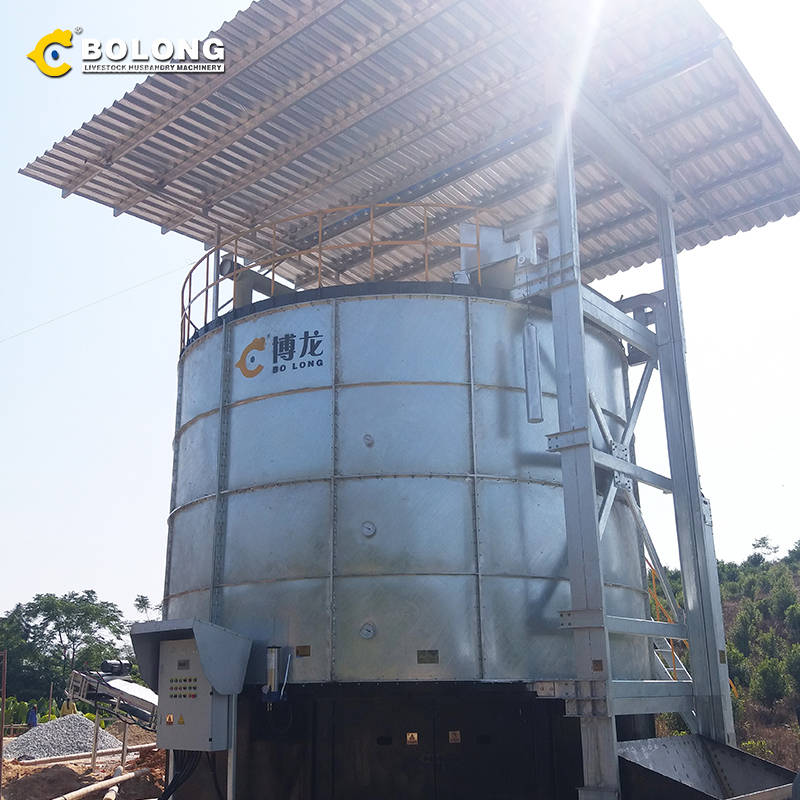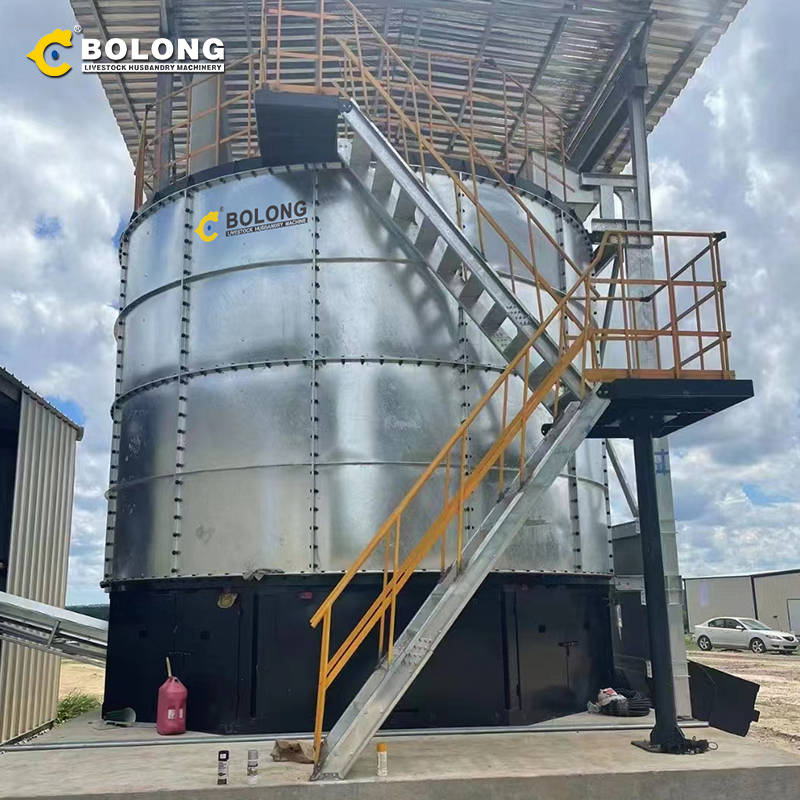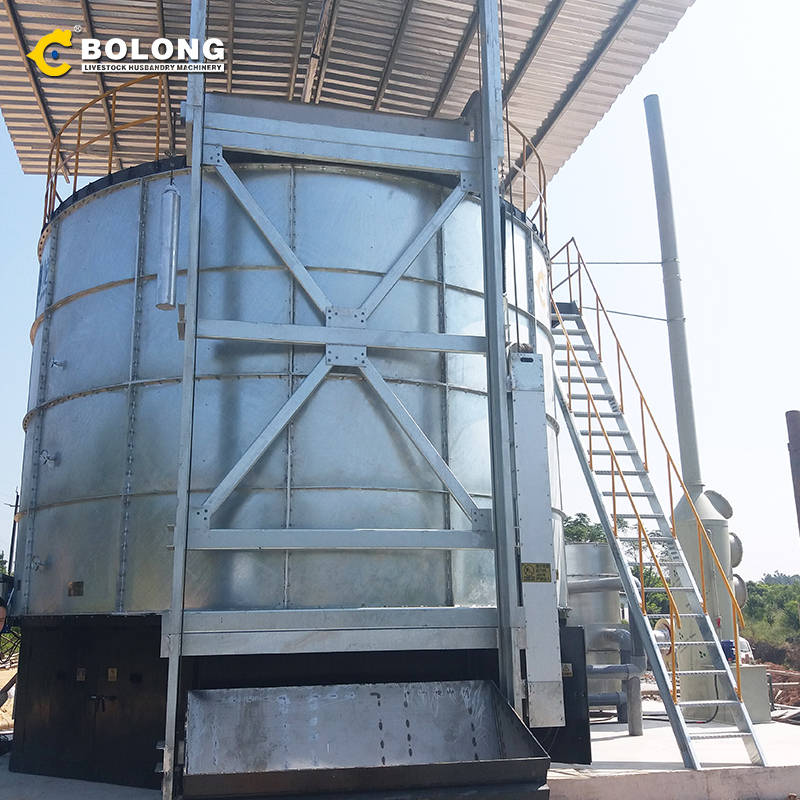With the global attention to environmental protection and sustainable development, environmentally friendly agriculture is becoming the mainstream development direction in the agricultural field. In this process, organic fertilizer composting machines have become a key tool in environmentally friendly agriculture with their unique technical advantages and versatility. This article will discuss the role of organic fertilizer composting machines in soil improvement, pollution prevention and control, resource recycling and economic benefits, and explain their great potential in the field of environmentally friendly agriculture.
Soil quality is the core of agricultural development, and the problem of soil degradation caused by long-term dependence on chemical fertilizers is becoming increasingly serious. Organic fertilizer composting machines produce high-quality organic fertilizers by efficiently converting organic waste, providing a strong guarantee for improving soil quality.
The organic fertilizers generated by the composting machine are rich in organic matter and a variety of nutrients, which can effectively improve the soil’s water and fertilizer retention capacity and improve soil structure. Long-term use of these organic fertilizers makes the soil more loose and the crop root system more sound.
The fertilizers produced by organic fertilizer composting machines are rich in organic matter and are an important food source for soil microorganisms. This can not only activate the soil ecosystem, but also inhibit the reproduction of harmful microorganisms and form a healthy soil microecological environment.
Excessive use of chemical fertilizers will lead to soil acidification, while the organic fertilizer produced by the composting machine can neutralize the acidic substances in the soil, while improving the buffering capacity of the soil and reducing the occurrence of compaction.

In modern agriculture, due to the excessive use of chemical fertilizers and pesticides, water pollution and soil pollution are very prominent. Organic fertilizer composting machines can effectively reduce these pollution problems by resource-based treatment of agricultural waste and provide support for the development of green agriculture.
Unlike chemical fertilizers, the organic fertilizers generated by composting machines release nutrients slowly and more evenly, which can effectively reduce the leakage of nitrogen, phosphorus and other elements into surrounding water bodies and reduce the risk of eutrophication of water bodies.
A large amount of greenhouse gases are emitted during the production and application of traditional fertilizers. The organic fertilizer composting machine greatly reduces the emission of methane and nitrous oxide through the closed fermentation process, which helps to achieve low-carbon agriculture.
Chemical fertilizers often contain heavy metals or other harmful components, while the organic fertilizer produced by the composting machine can effectively remove harmful substances and reduce the potential risk of environmental pollution through strict raw material screening and high-temperature treatment.

An important function of the organic fertilizer composting machine is to convert agricultural and animal husbandry waste into valuable resources and achieve “zero waste” of waste.
For example, livestock and poultry manure and crop straw, these agricultural wastes are usually difficult to handle, but through the conversion of the composting machine, they can be turned into efficient organic fertilizers, realizing the resource utilization of waste.
Municipal domestic waste contains a large amount of organic components. Composting through composting machines not only reduces the pressure of landfill and incineration, but also converts these wastes into fertilizer resources for agricultural production.
As an important tool connecting the planting industry and the breeding industry, the composting machine can help the agricultural system achieve closed-loop development. After the waste generated by the breeding industry is treated by the composting machine, it can be directly reused in the planting industry, reducing the input and waste of external resources.
From the perspective of economic benefits, organic fertilizer composting machines can not only reduce agricultural production costs, but also help farmers increase product value and increase income.
Although the purchase and use of composting machines requires a certain amount of initial investment, it can save farmers a lot of money in the long run due to the reduction of fertilizer use and environmental restoration costs.
Agricultural products grown with organic fertilizer produced by composting machines are of higher quality, easier to pass organic certification, and can get higher prices in the market.
The popularization of composting machines has not only promoted the development of the organic fertilizer industry, but also promoted the upgrading of related industries such as waste recycling and agricultural machinery manufacturing, creating more employment opportunities.

With the continuous advancement of science and technology, the functions and technologies of organic fertilizer composting machines are also constantly being optimized. In the future, composting machines will further develop in the following aspects:
Modern composting machines already have automatic temperature and humidity control and intelligent monitoring functions, and in the future they can be remotely controlled and precisely managed through the Internet of Things technology.
According to different user needs, composting machines will develop popular products that are more suitable for family farms and small agricultural enterprises, while providing modular solutions for large agricultural projects.
With the growth of market demand and the popularization of technology, the manufacturing and maintenance costs of composting machines will be further reduced, making them affordable for more farmers.
Organic fertilizer composting machines have become the core equipment in the field of environmentally friendly agriculture due to their outstanding advantages in improving soil quality, reducing pollution emissions, promoting resource recycling and improving economic benefits. By promoting the use of composting machines, it can not only promote the green and ecological development of agriculture, but also provide a new solution path for the sustainable development of global agriculture. In the future, with the continuous innovation of technology and the widespread promotion of application, organic fertilizer composting machines will surely play a greater role in environmentally friendly agriculture, benefiting mankind and the earth.